Nicht müde werden —
Nurses in German hospitals
When we get sick, nurses help us recover.
However, healthcare has been made a part of the capitalist system — today, the nursing profession needs recovery, too.
Hannover, Germany, 2018
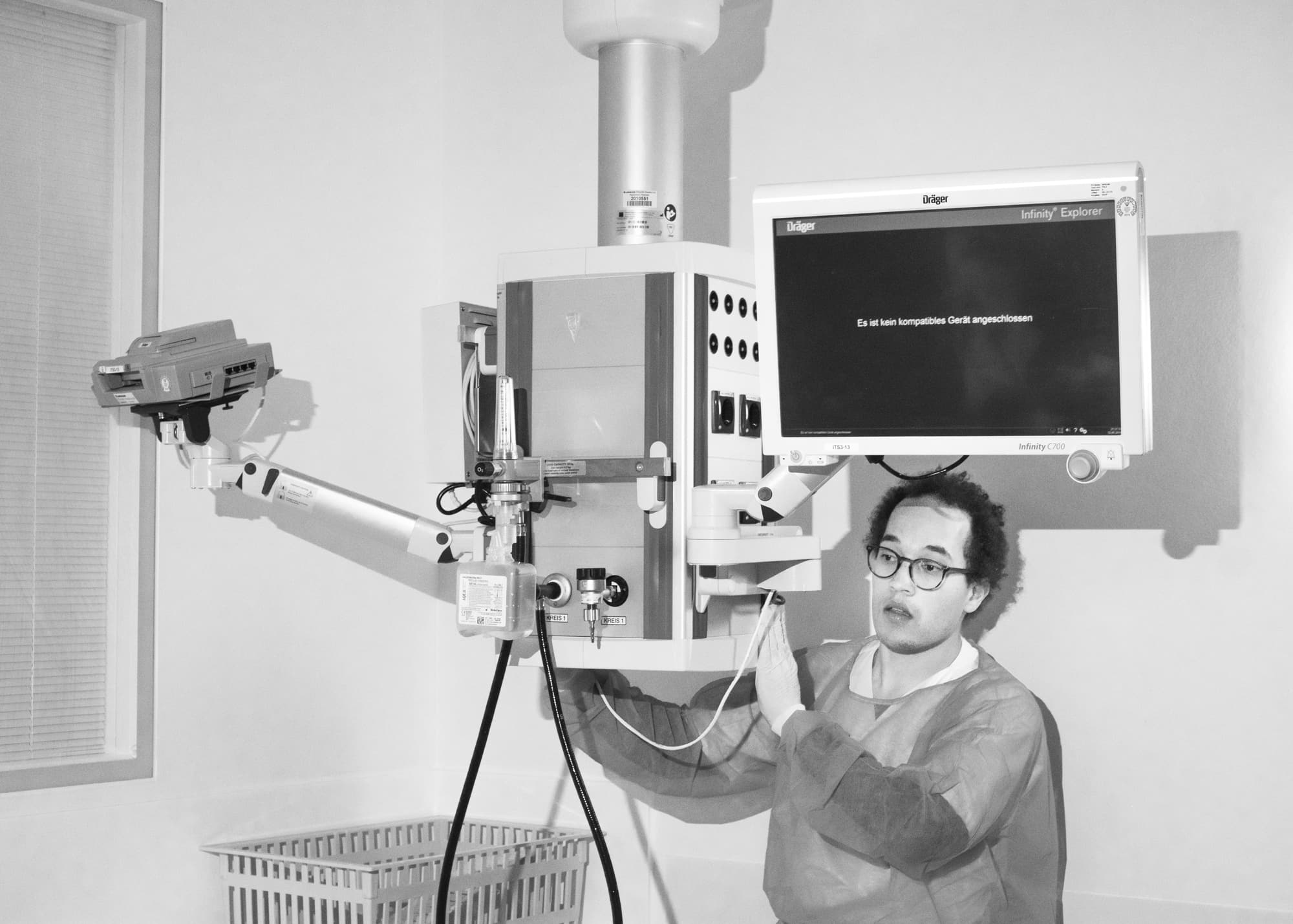
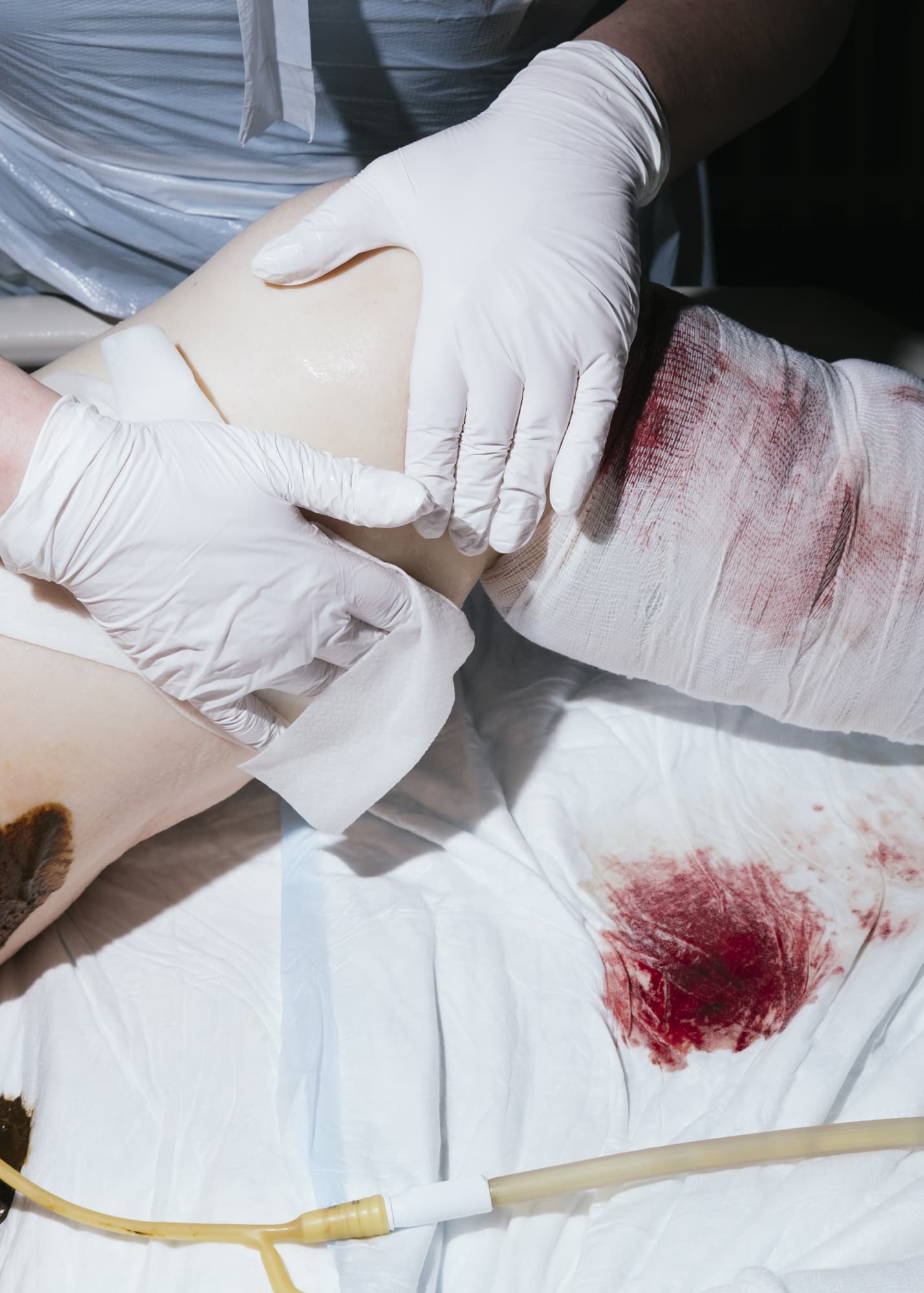
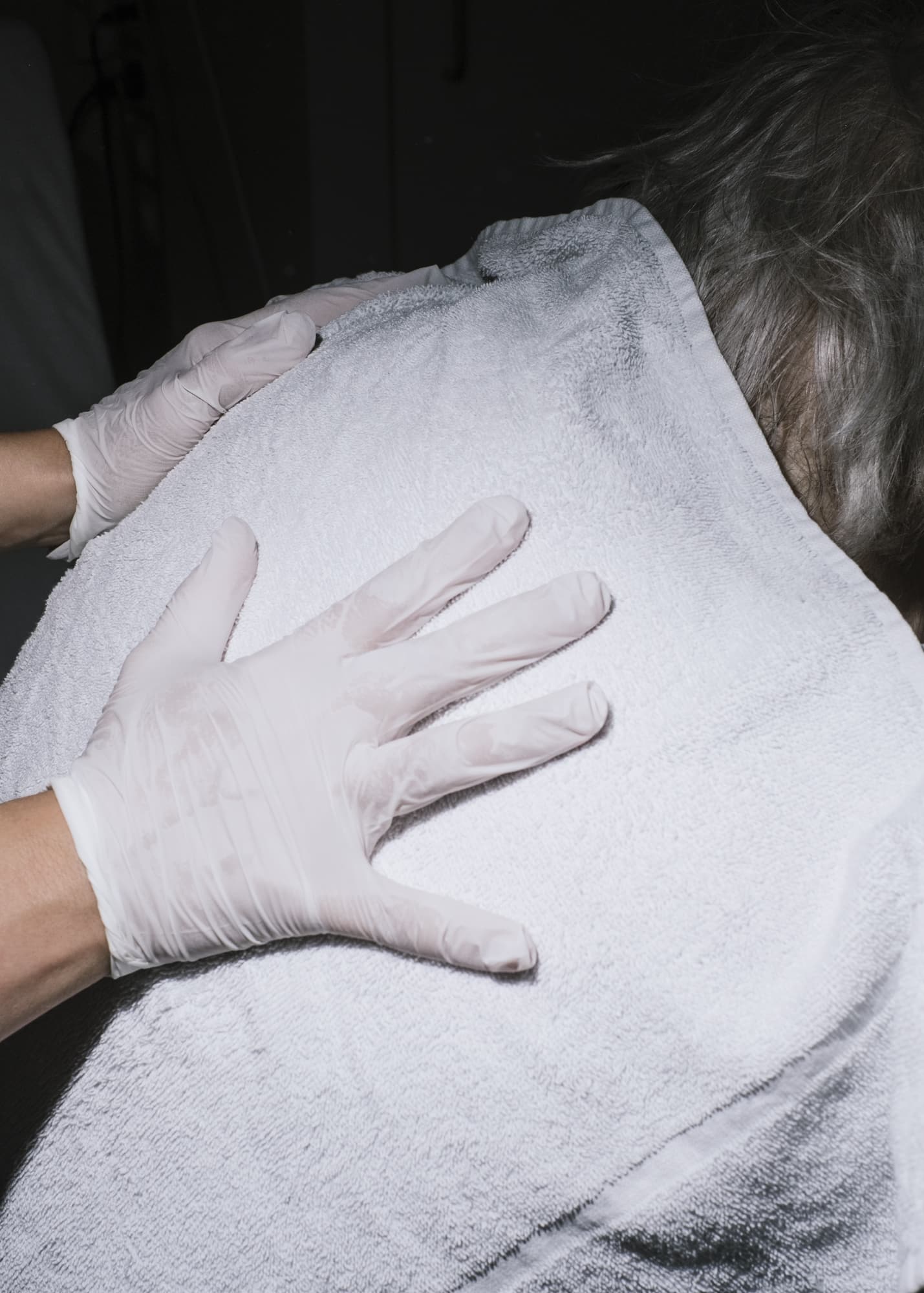
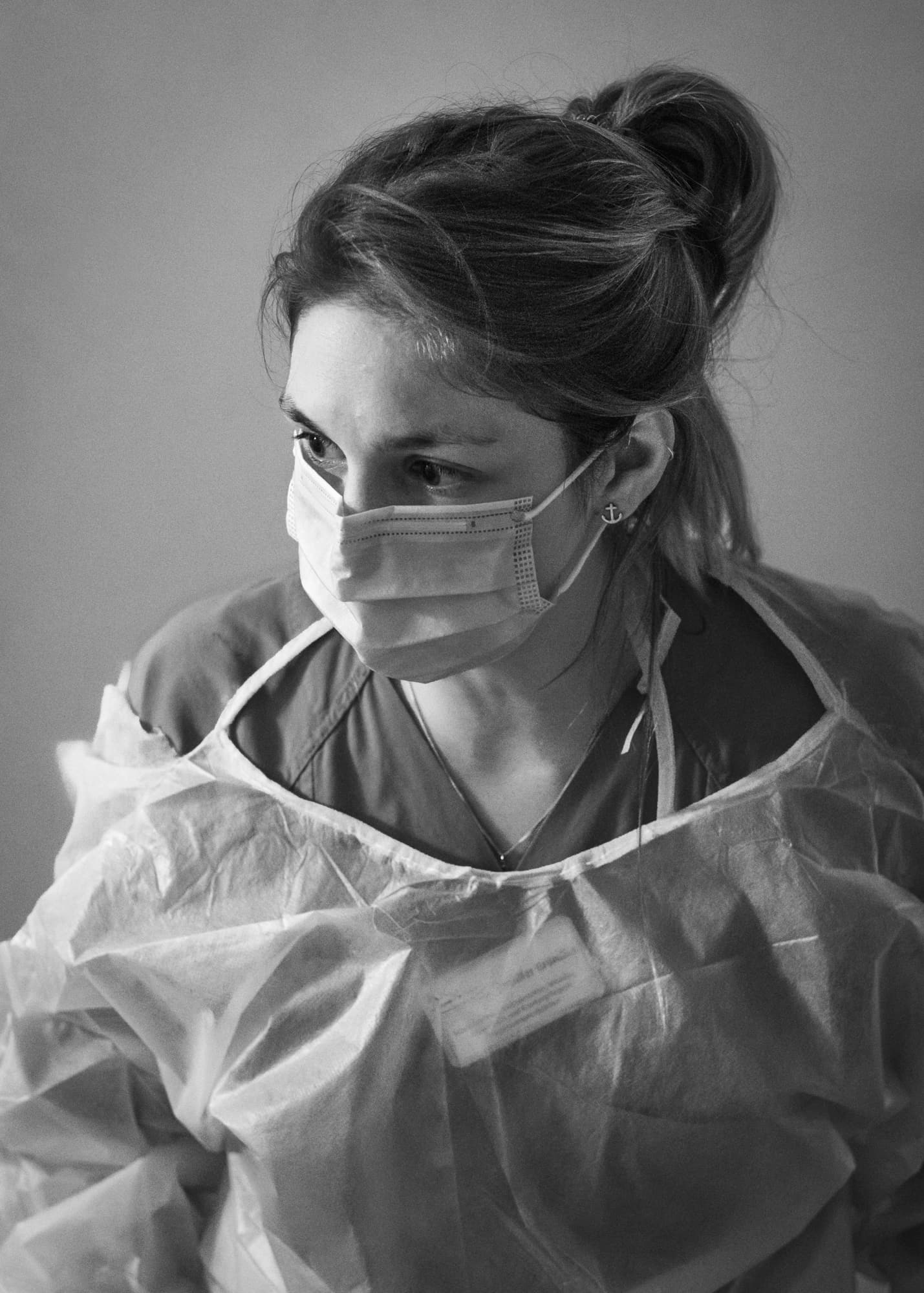
Ideally, on the ICU a 1:1 care is provided.
But we don’t have the staff.
There are shifts where you look after three or four patients at the same time. You simply can’t meet their needs.
And at the end of the day you go home and think:
„I wanted to give 100%, but managed to do only half of everything.“
— Anna W., intensive care nurse
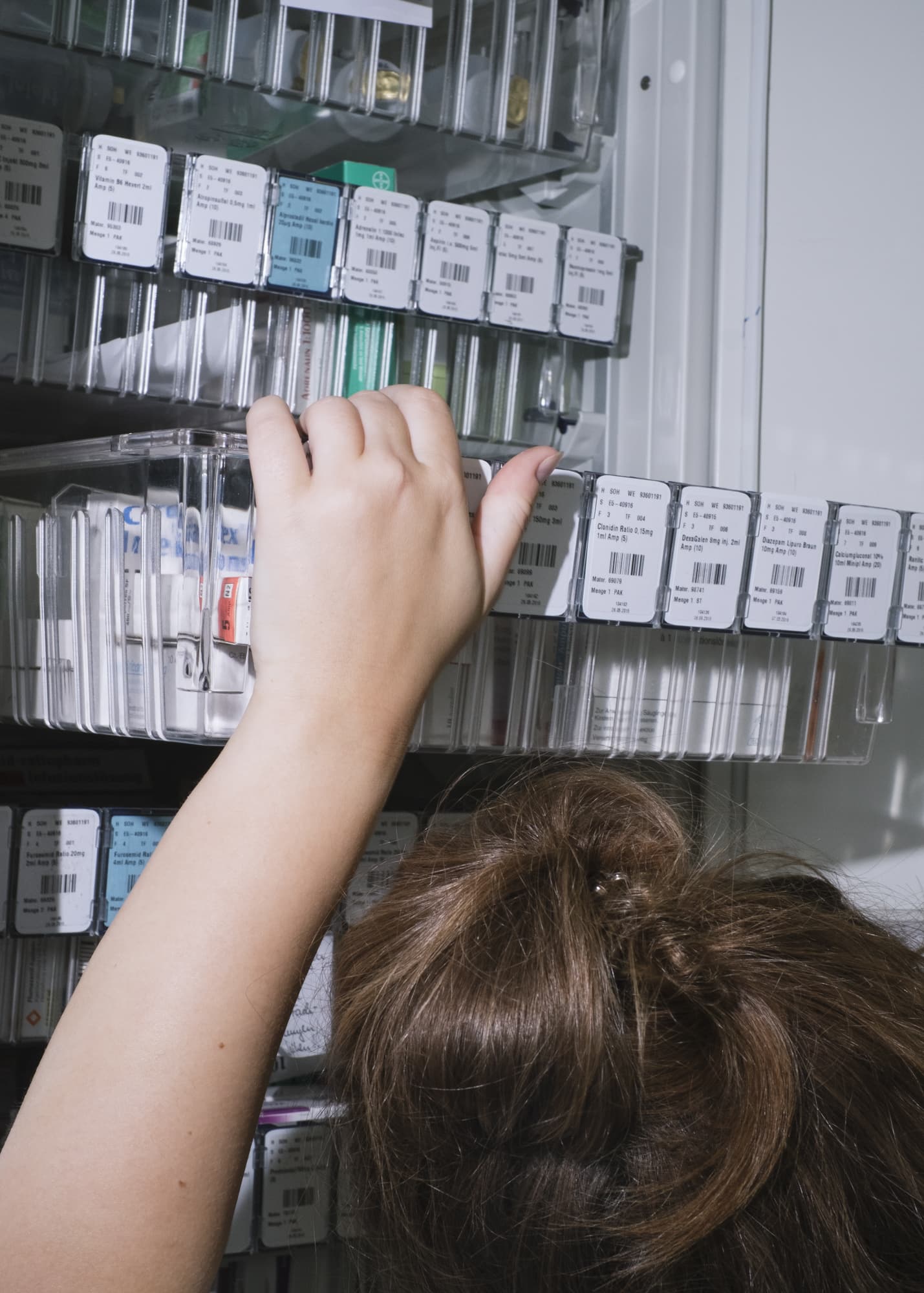
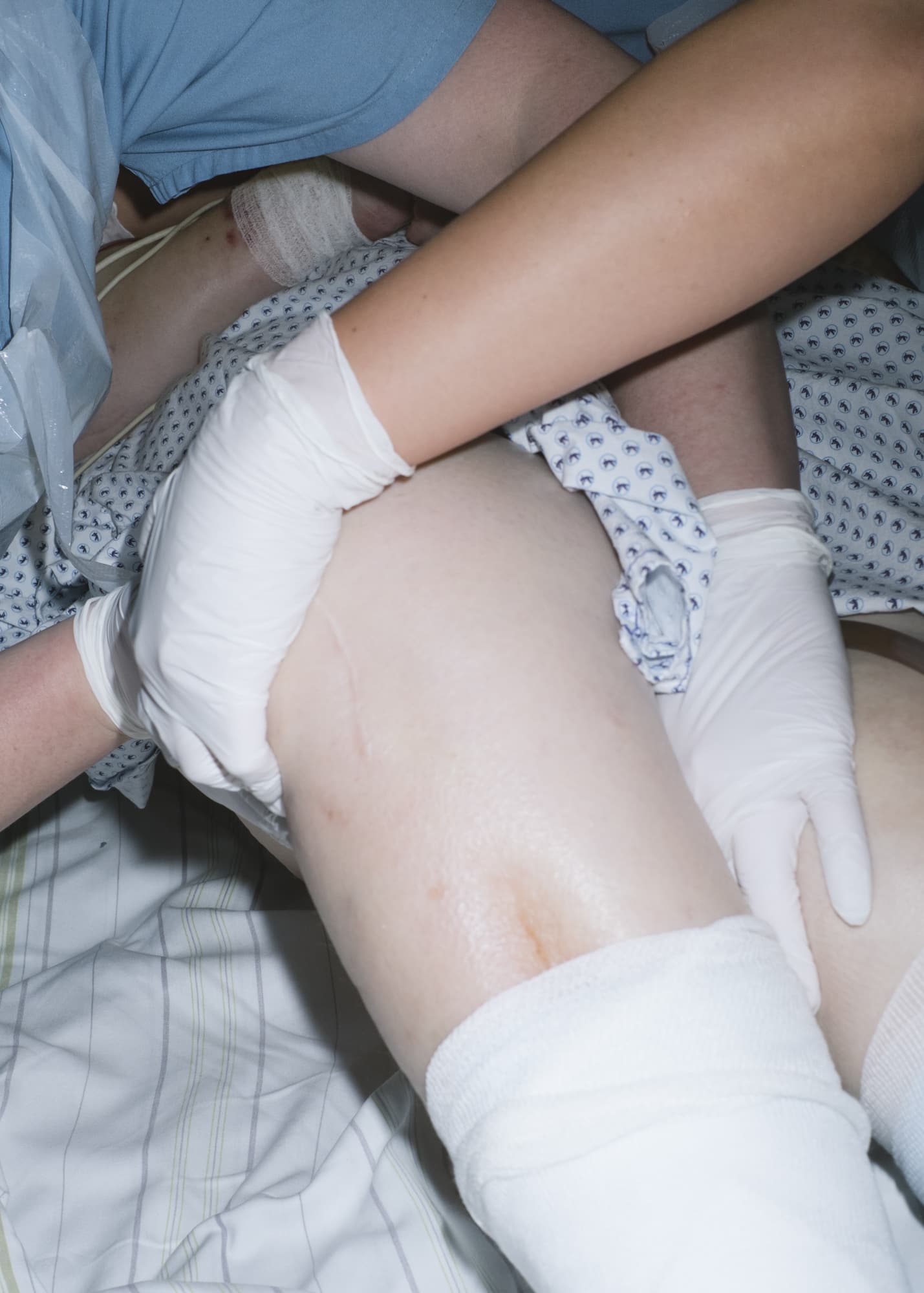
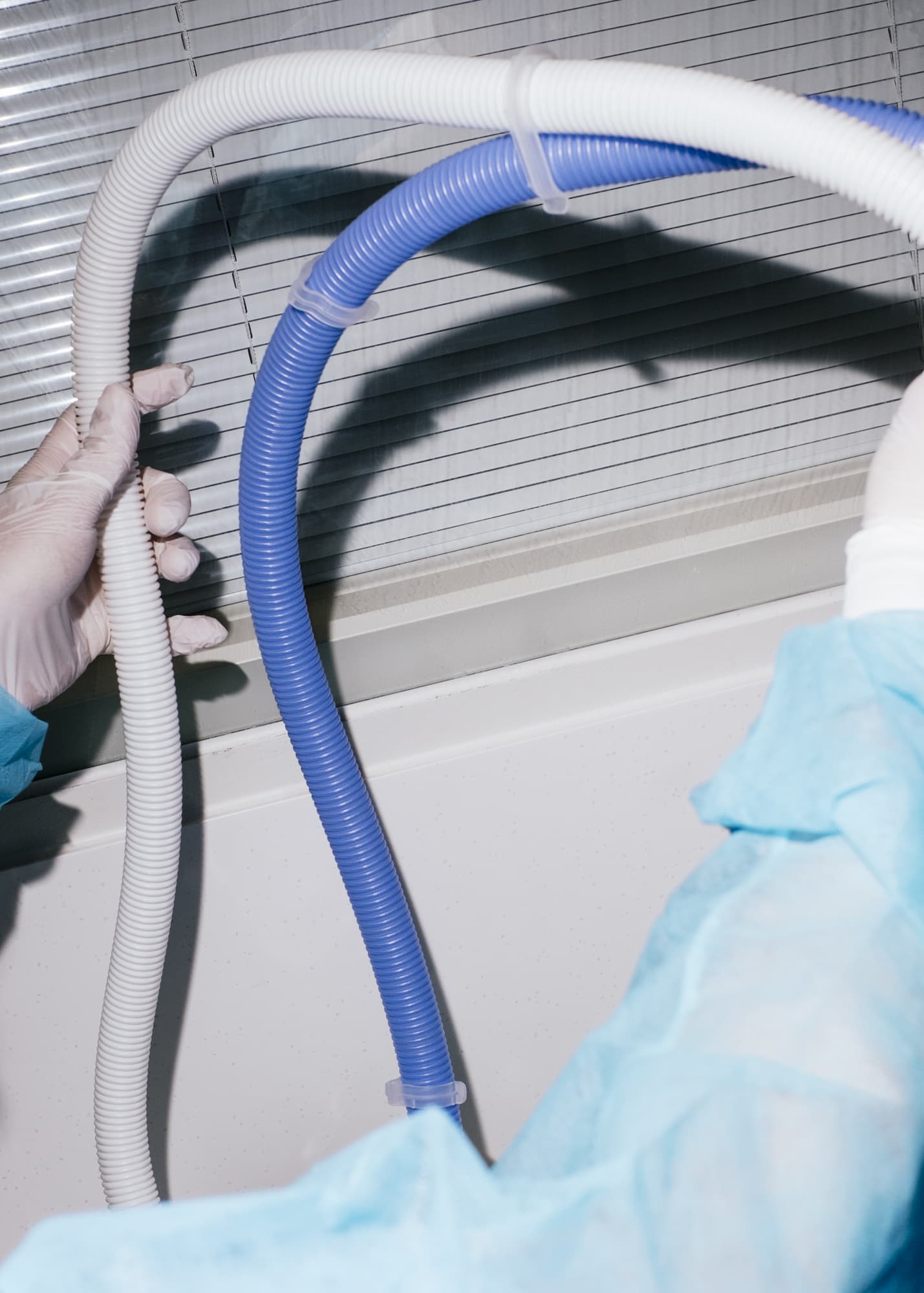
To prevent bedsores, you have to help patients change position every few hours.
It’s much easier if you have help from a colleague. But often, there is no one to help you, even with heavier patients.
And then you have the choice:
Either you do this on your own and tonight, your back will be aching — or your patient will get a sore that could have been prevented.
So often, you cross your personal limits to keep a patient from harm.
— Jennifer G., intensive care nurse
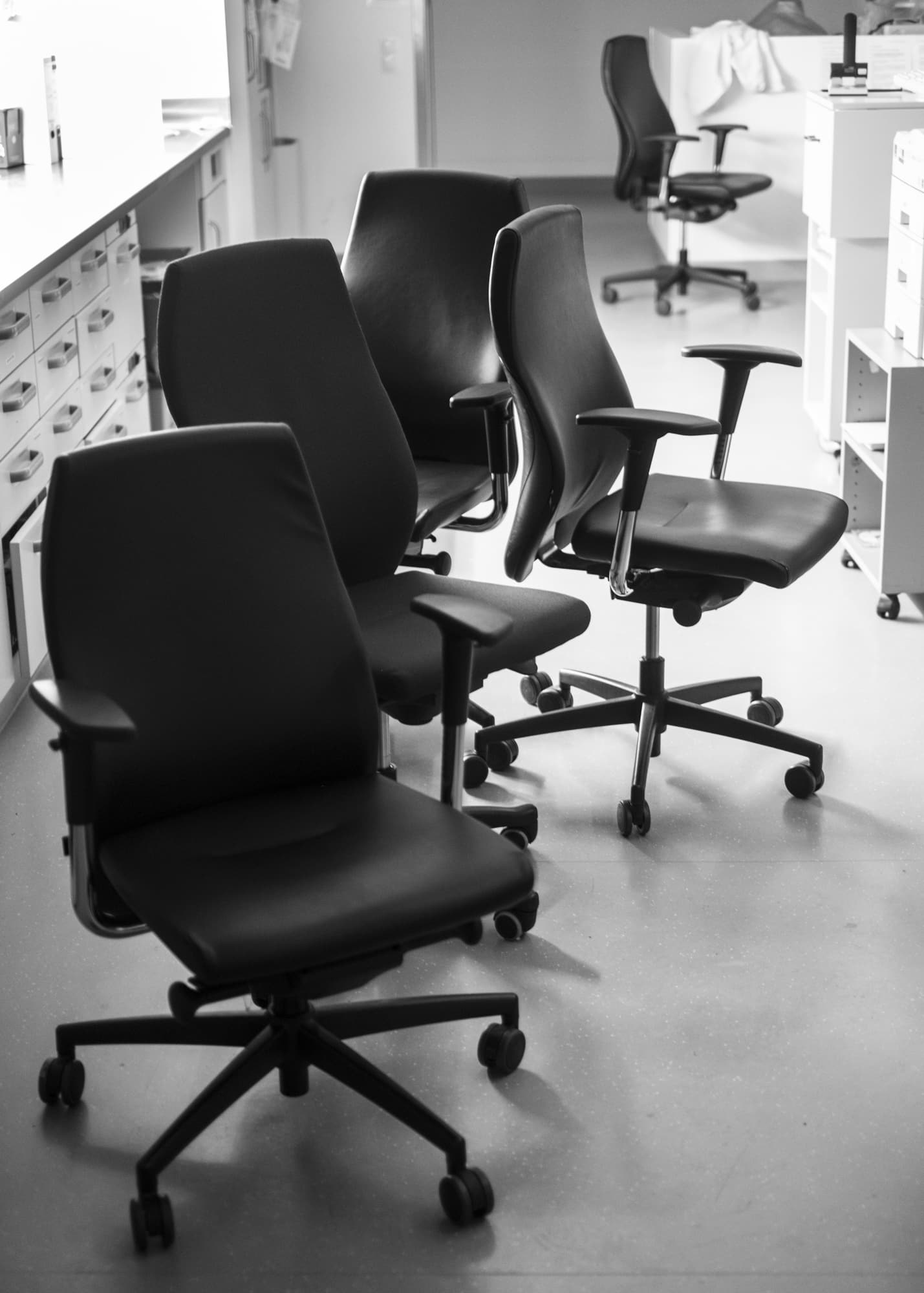
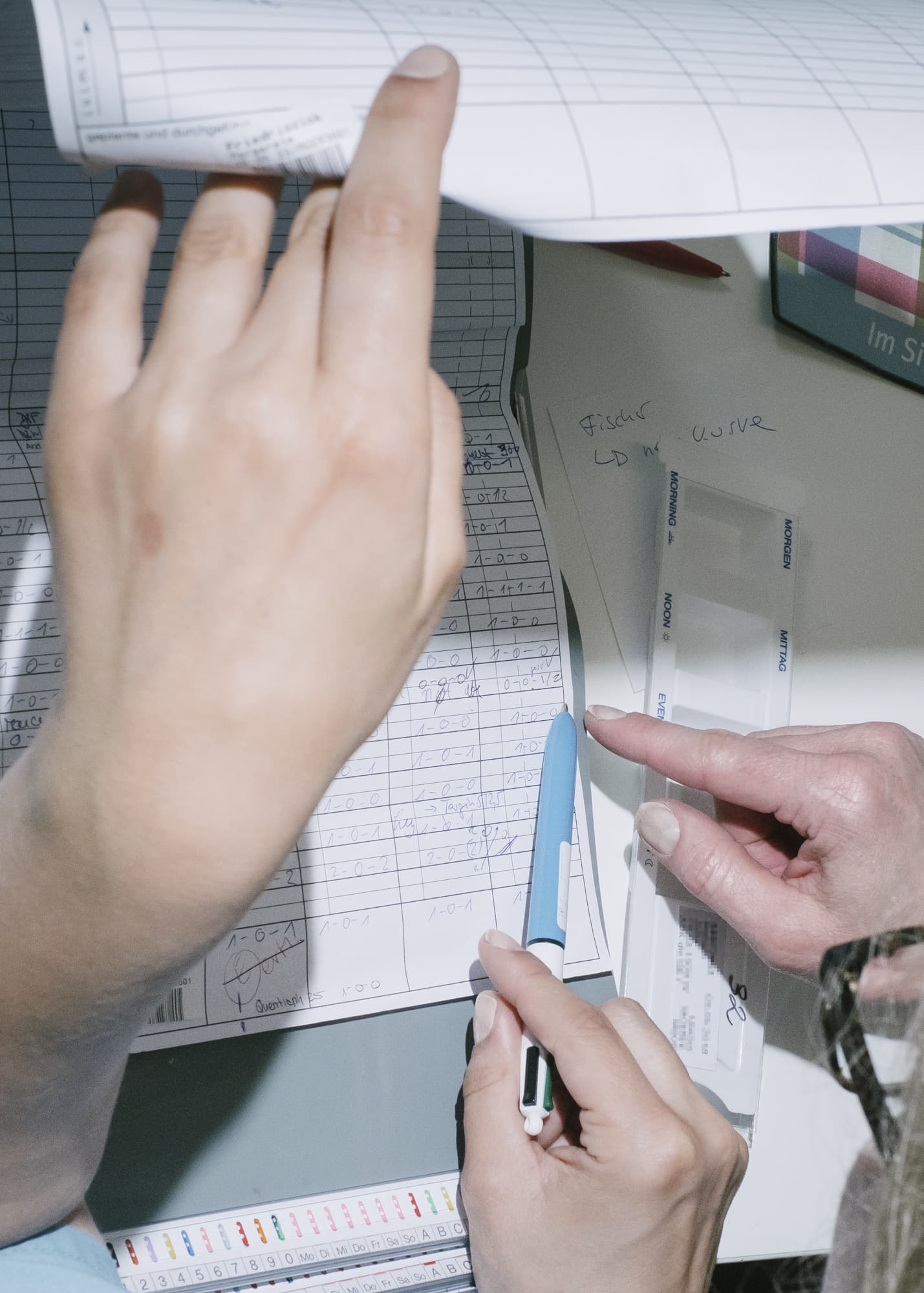
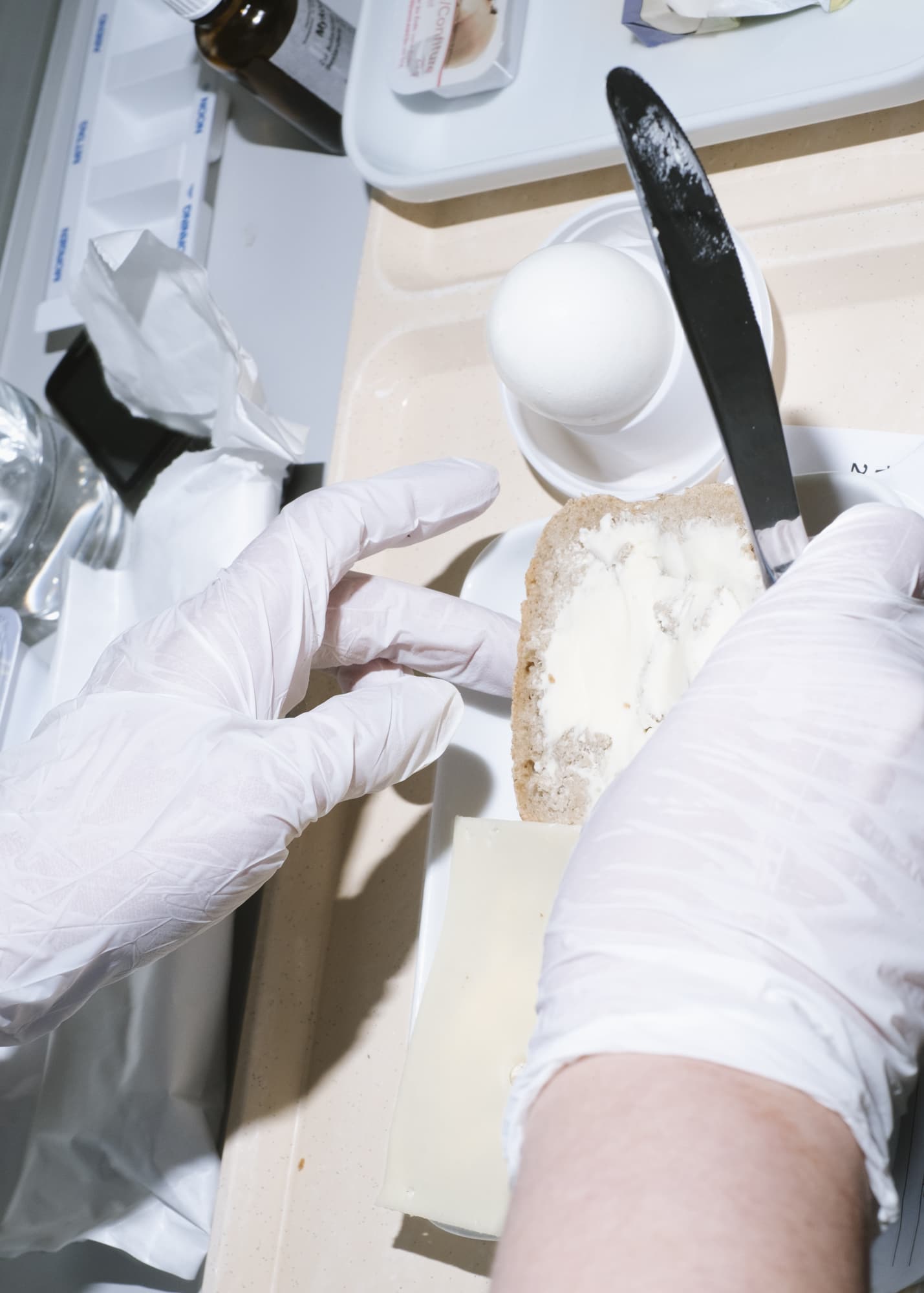
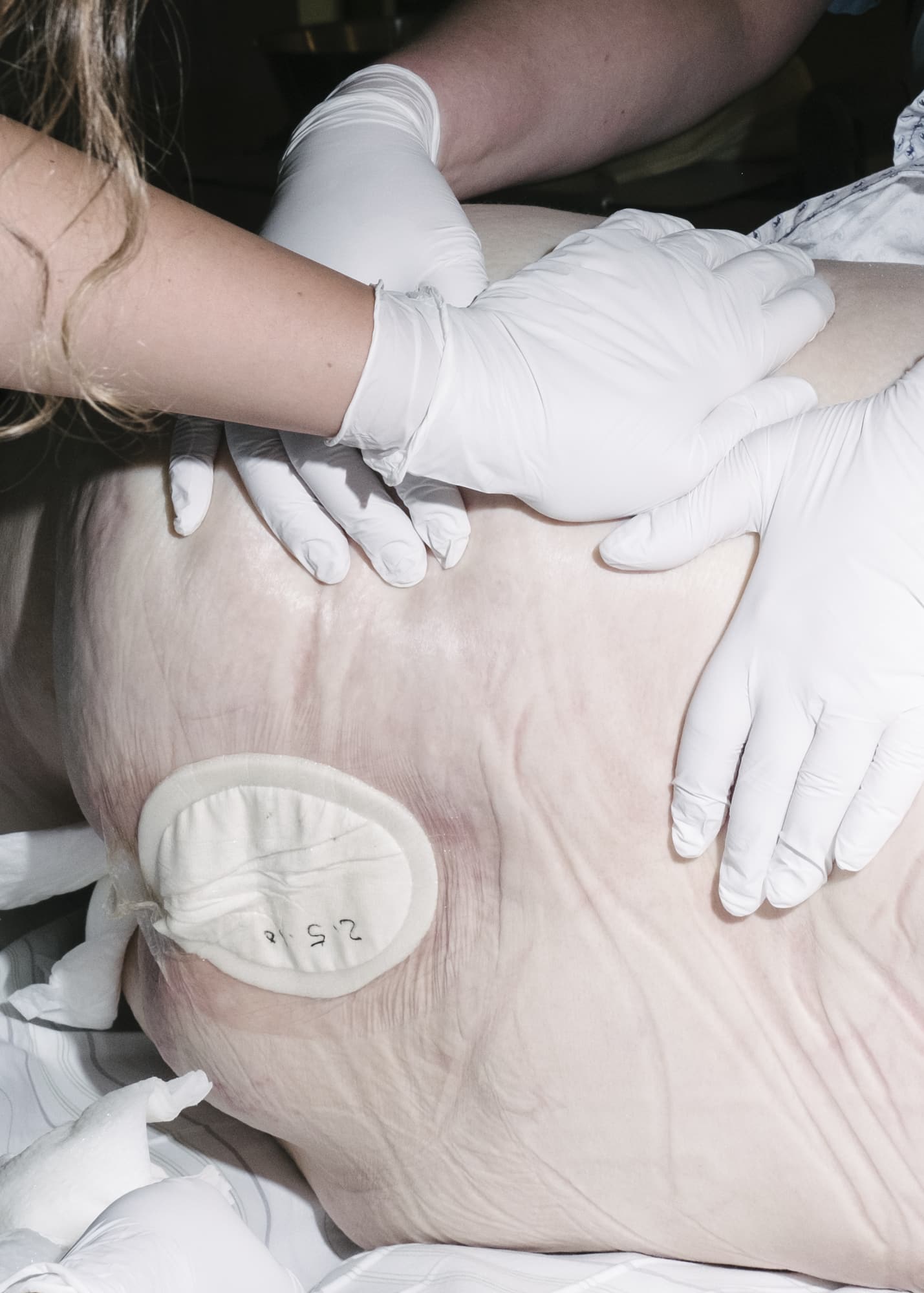
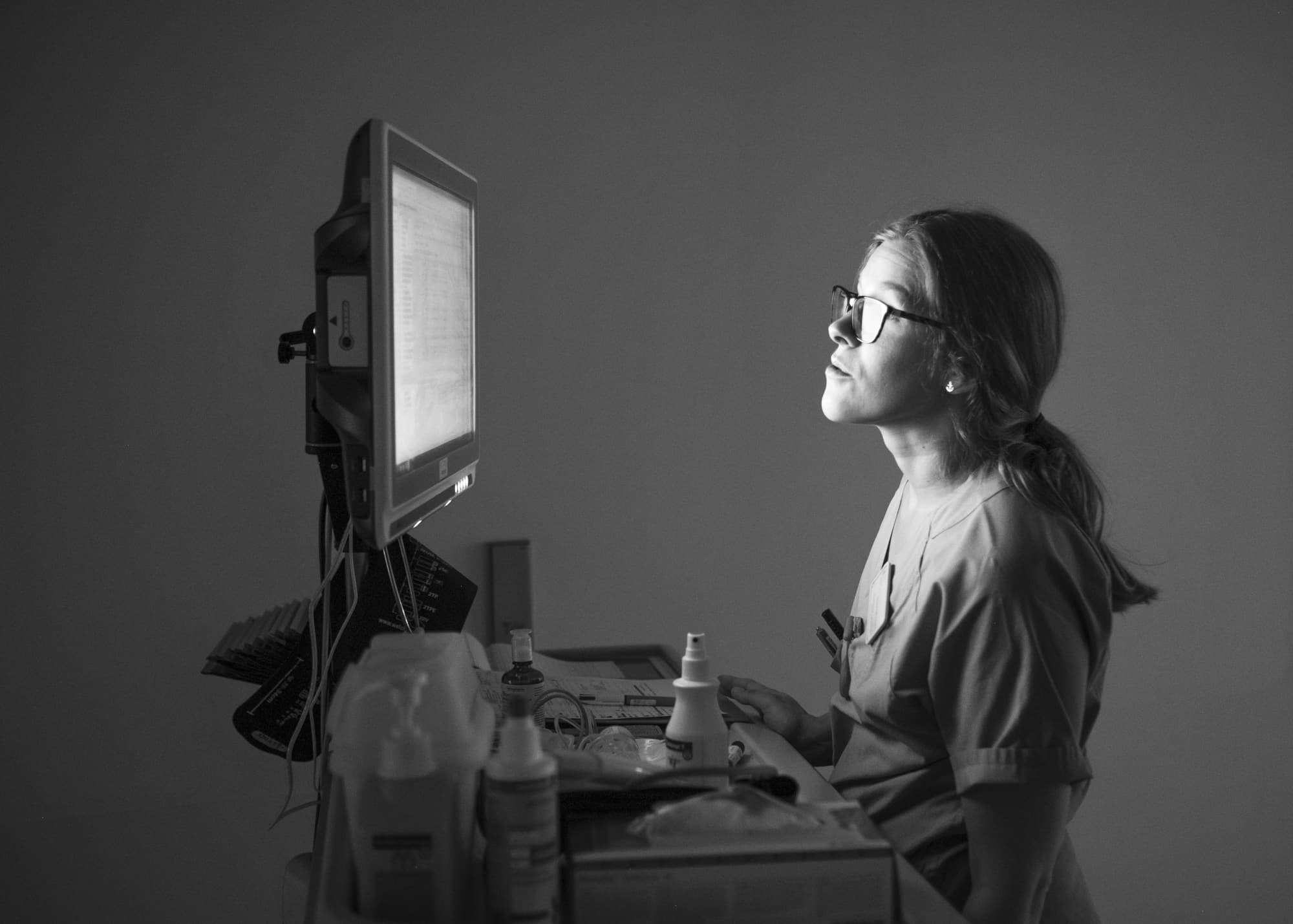
To me, privatization of hospitals really has been a bad idea — because you economize the life of human beings.
In the car industry, everything is about numbers, that’s okay. But to economize the fact that a patient is sick — often it’s chronic, you just know, this will get worse, it will cost more money. It’s obvious, in the end it will be a money-losing business.
I just find it questionable and an ethical dilemma to do business with human beings and their health.
— Thorid G., nurse at the geriatric departement
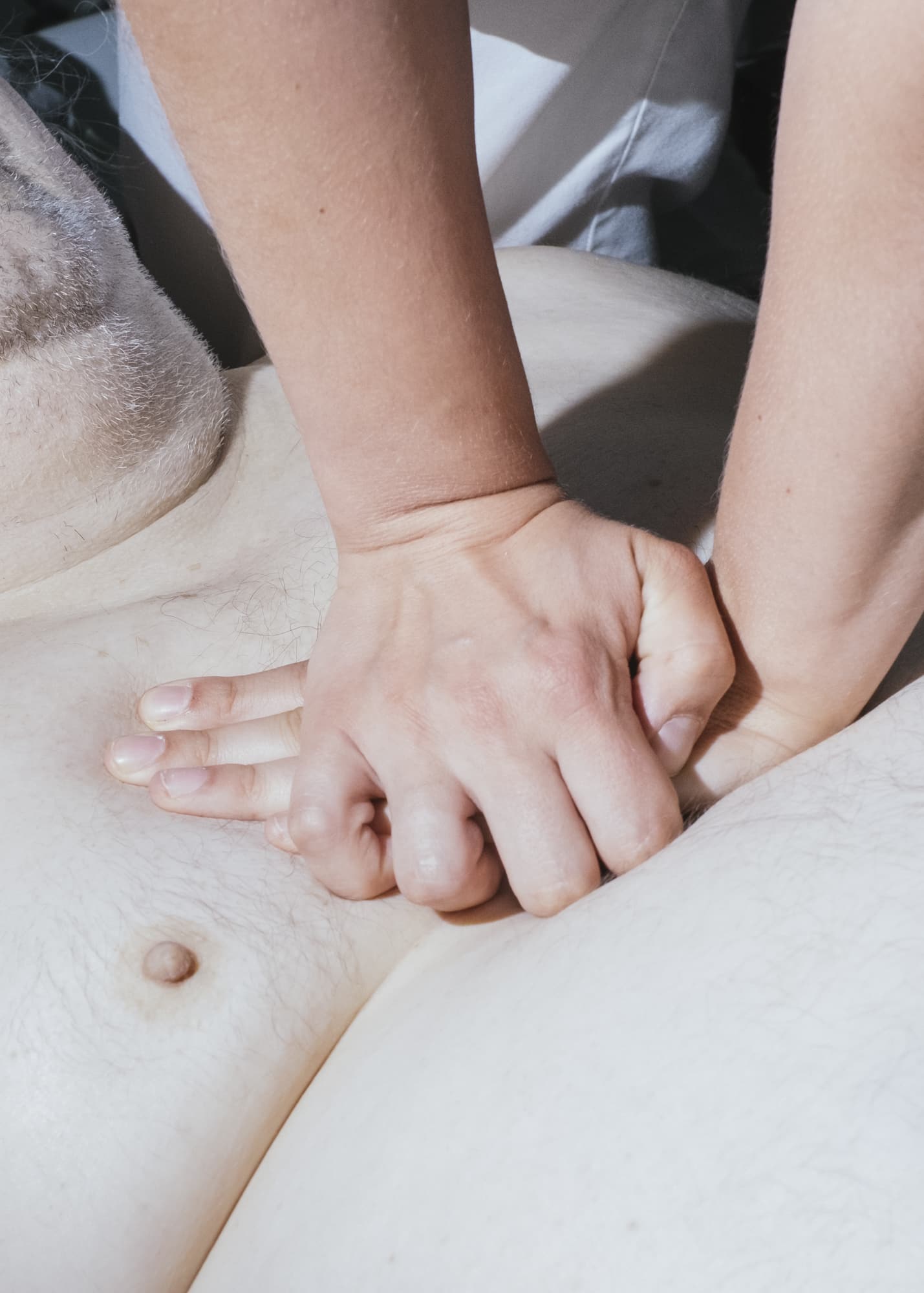
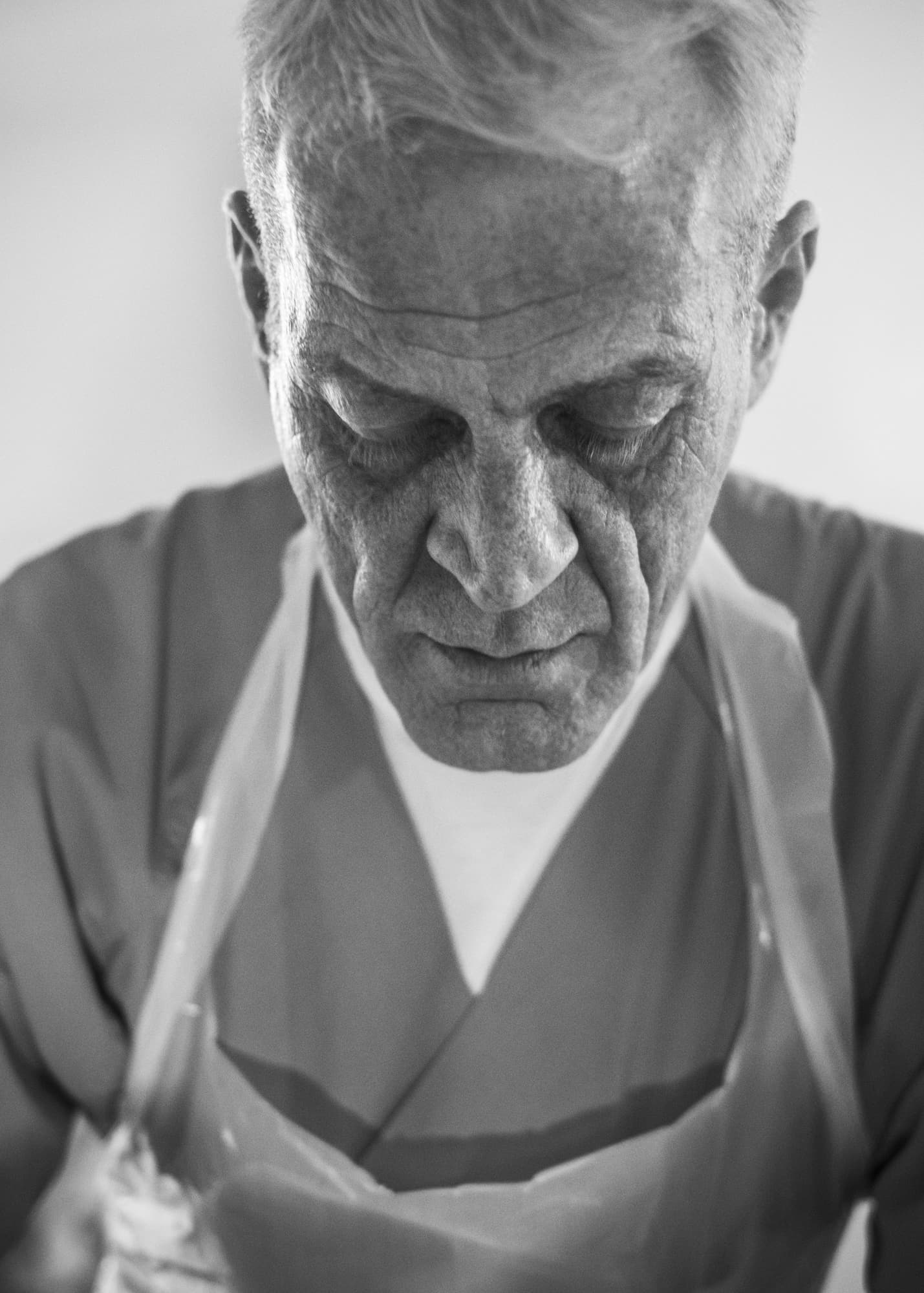
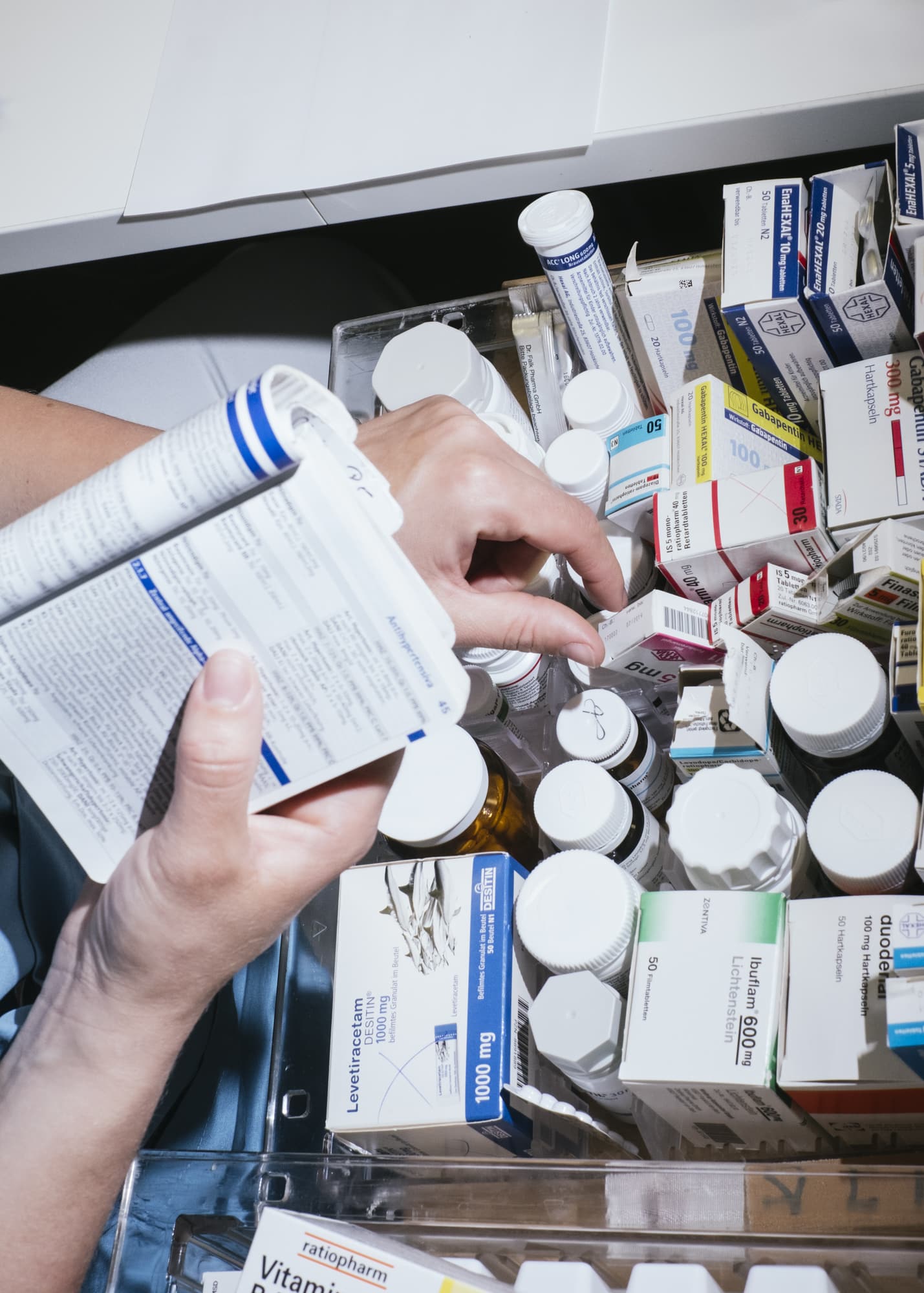
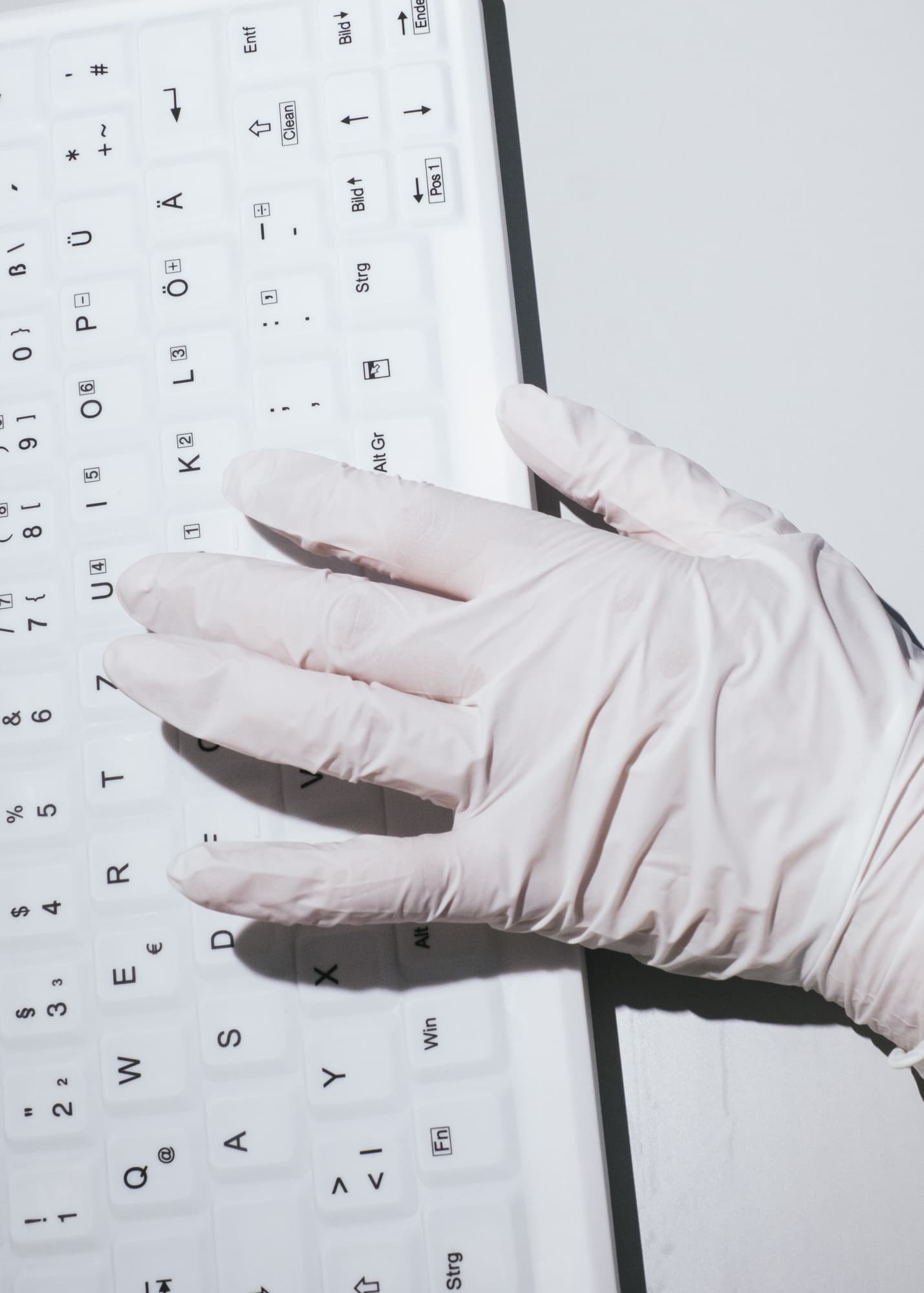
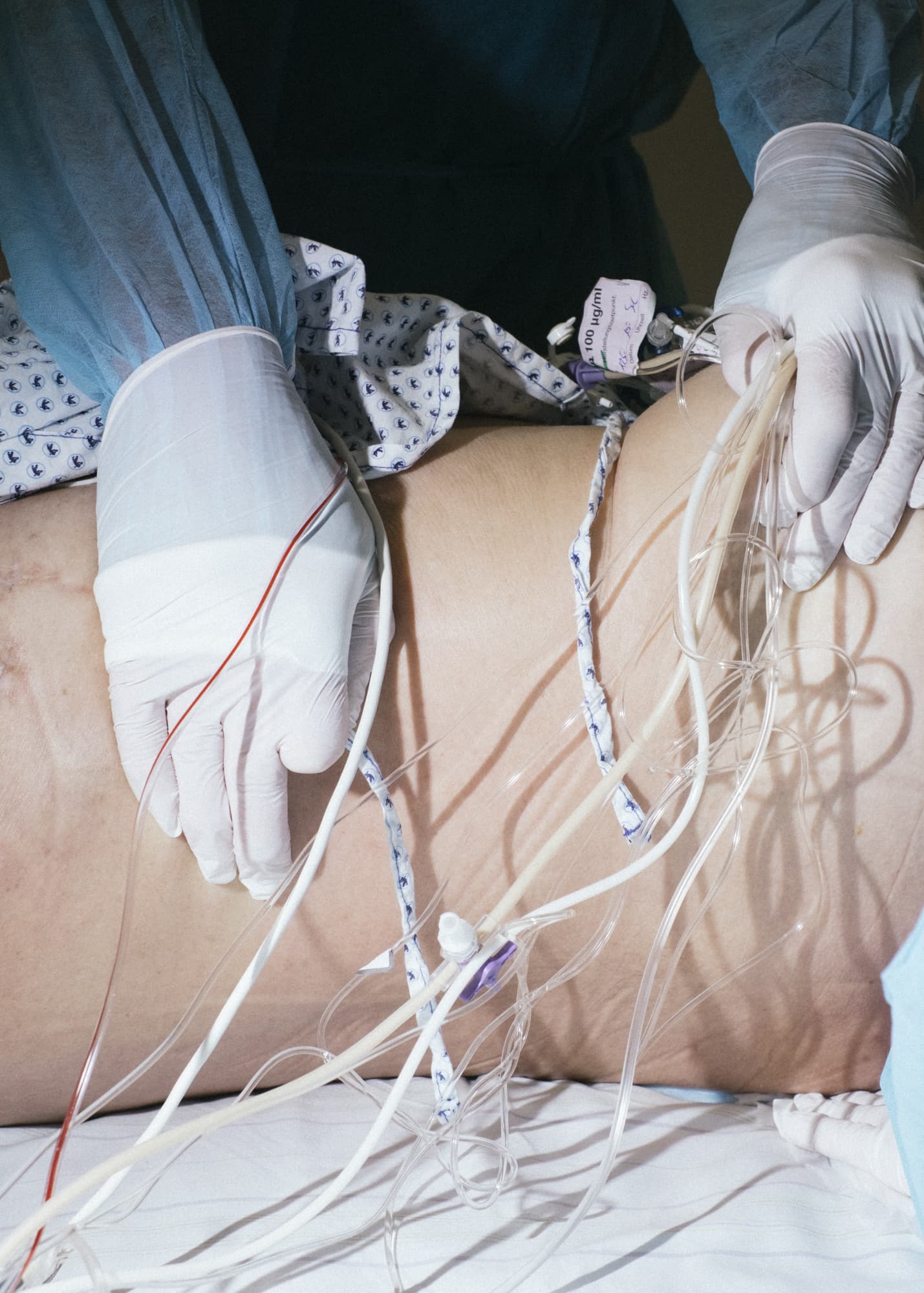
It’s funny, often, when a male nurse looks after a patient, they ask: „So you’re the doctor?“ As a female nurse, this never happens.
No one has ever asked me whether I’m the doctor.
— Anna W., intensive care nurse
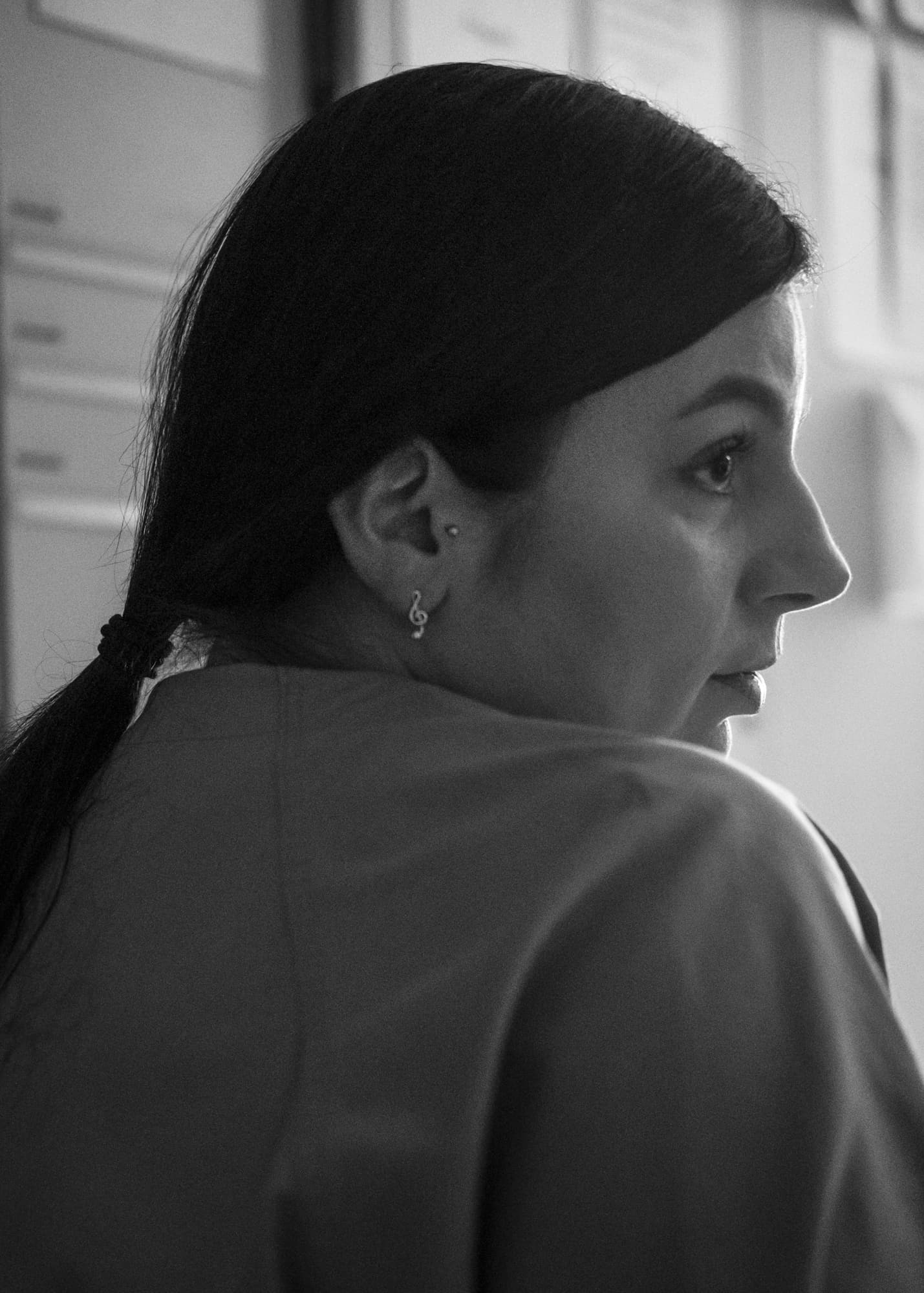
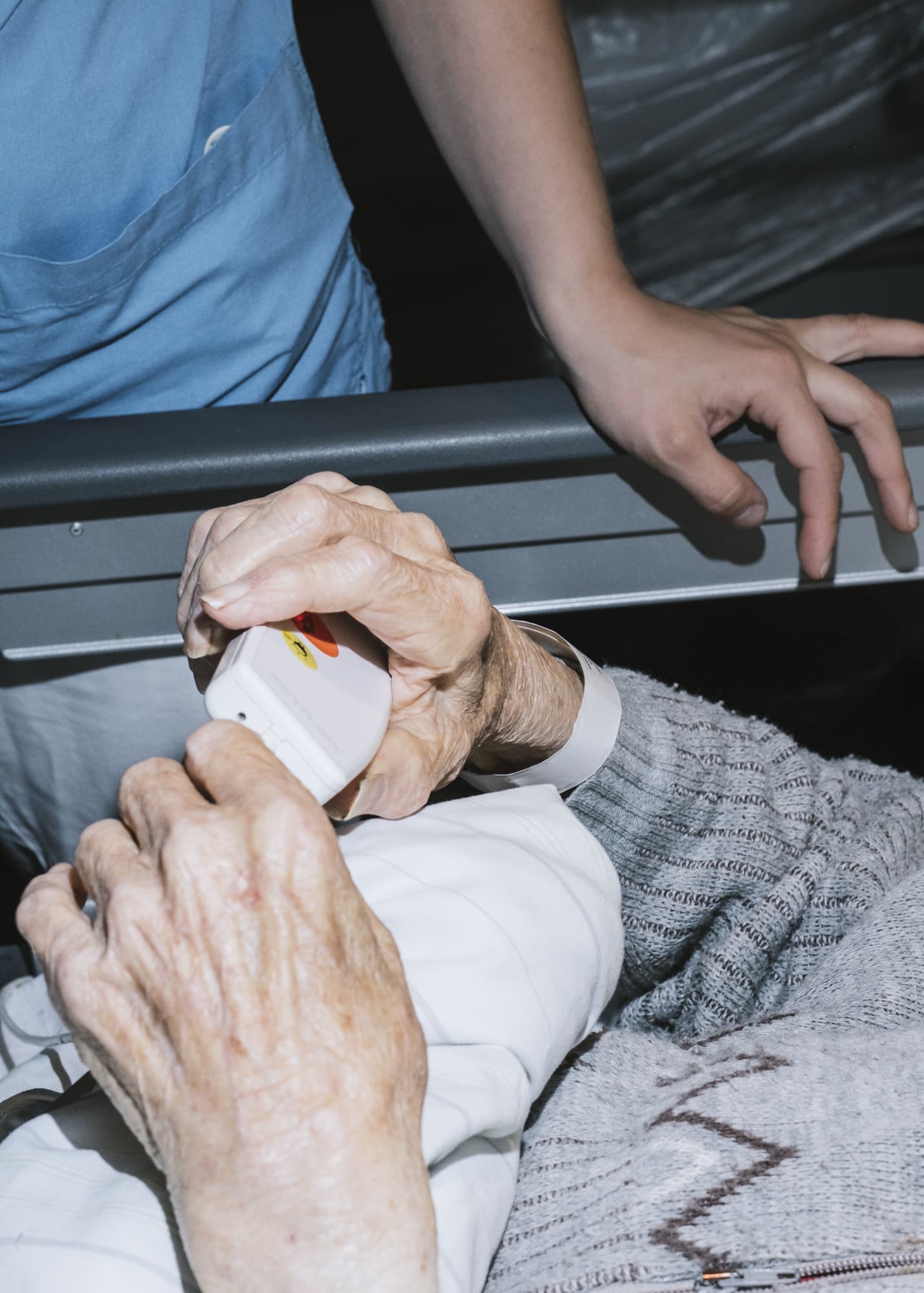
To reanimate a patient is really stressful. You just know, you’re fighting for this life at that very moment.
The feeling of pressing the ribcage and maybe even breaking it… after my first reanimations, I’ve always stumbled off the bed trembling.
If you don’t work in a healthcare profession, you’re hardly ever confronted with something like this. You also don’t have to face it with that frequency and intensity — and you also don’t have to deal with the fact that some patients just don’t make it.
— Jennifer G., intensive care nurse
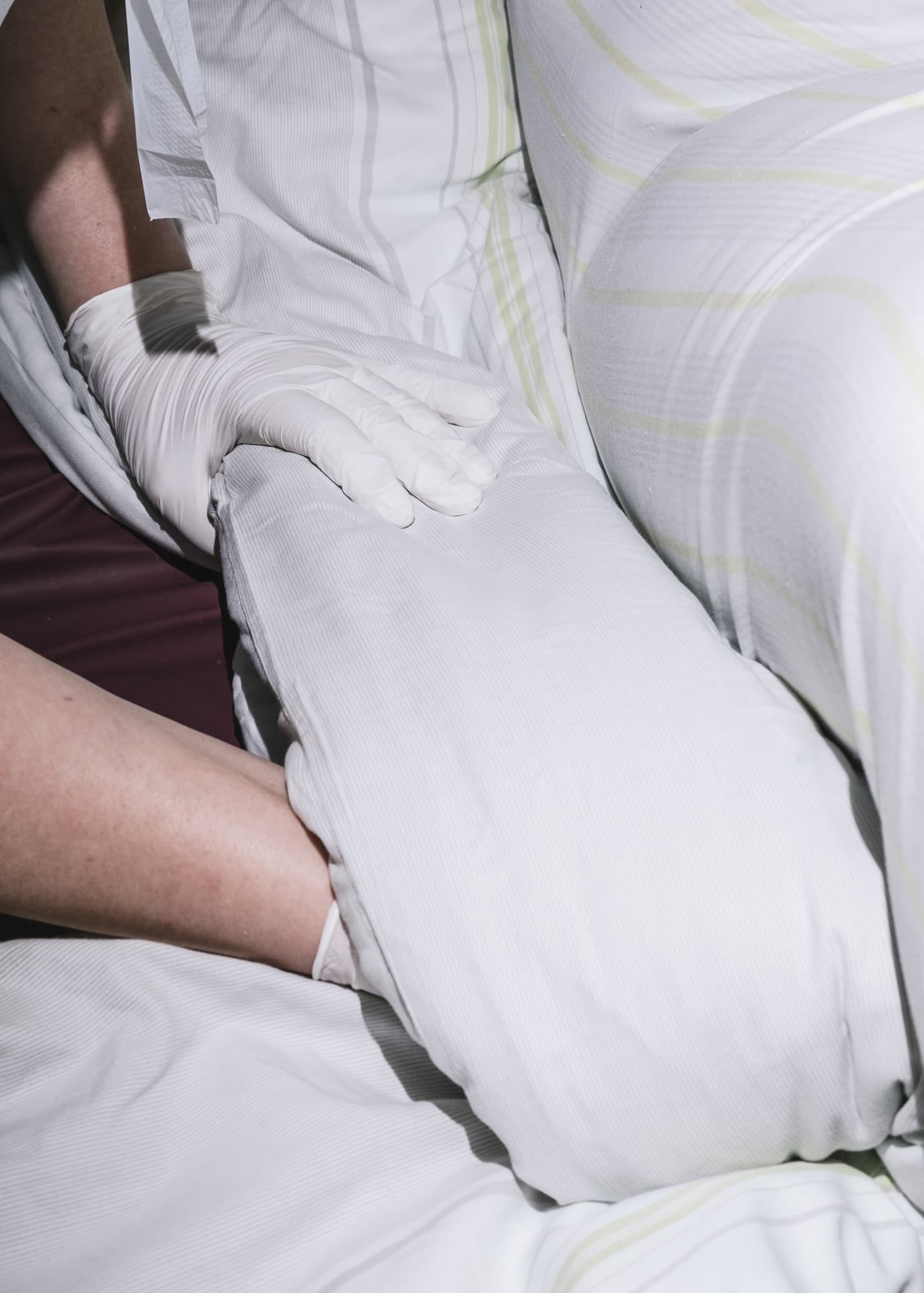
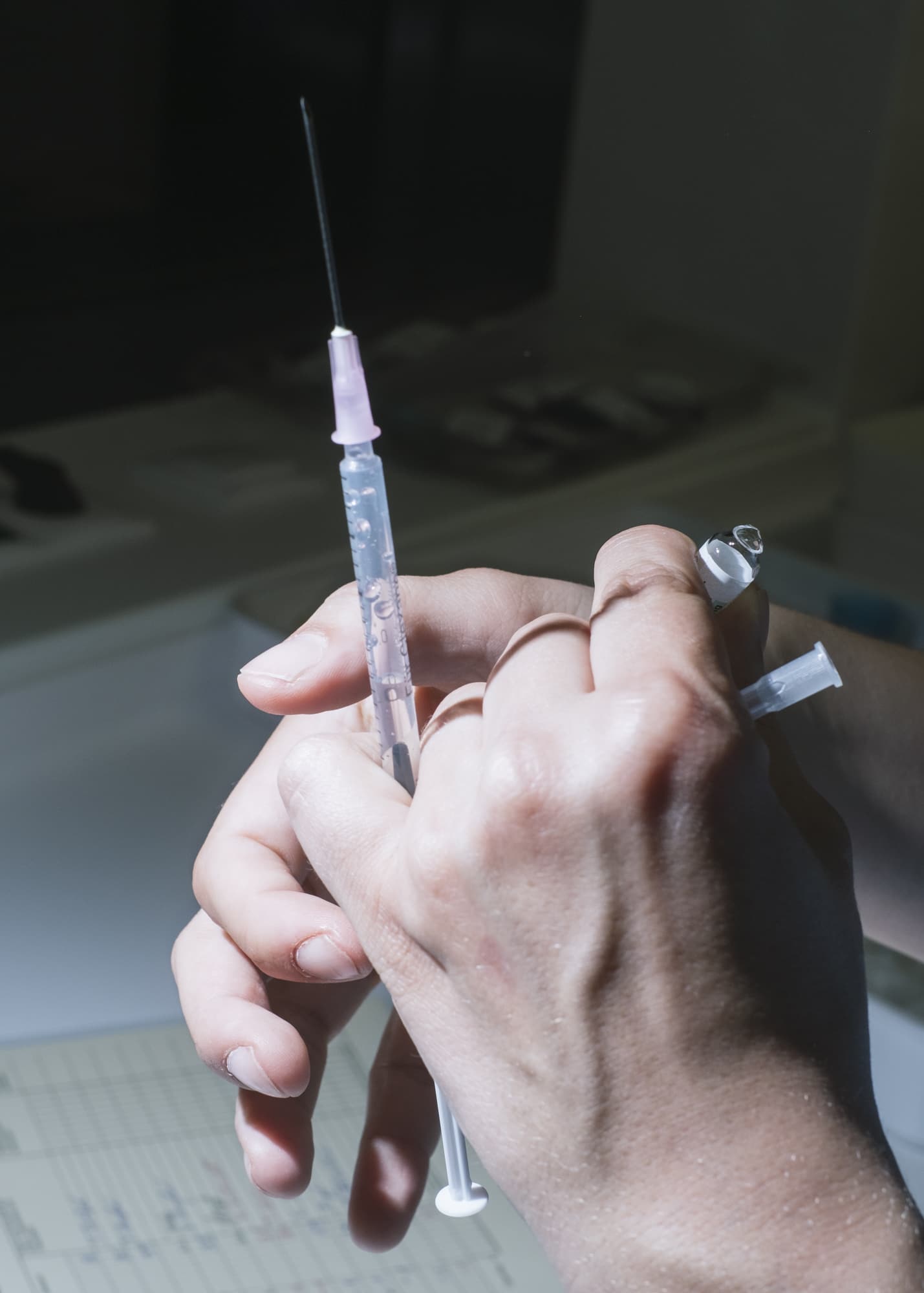
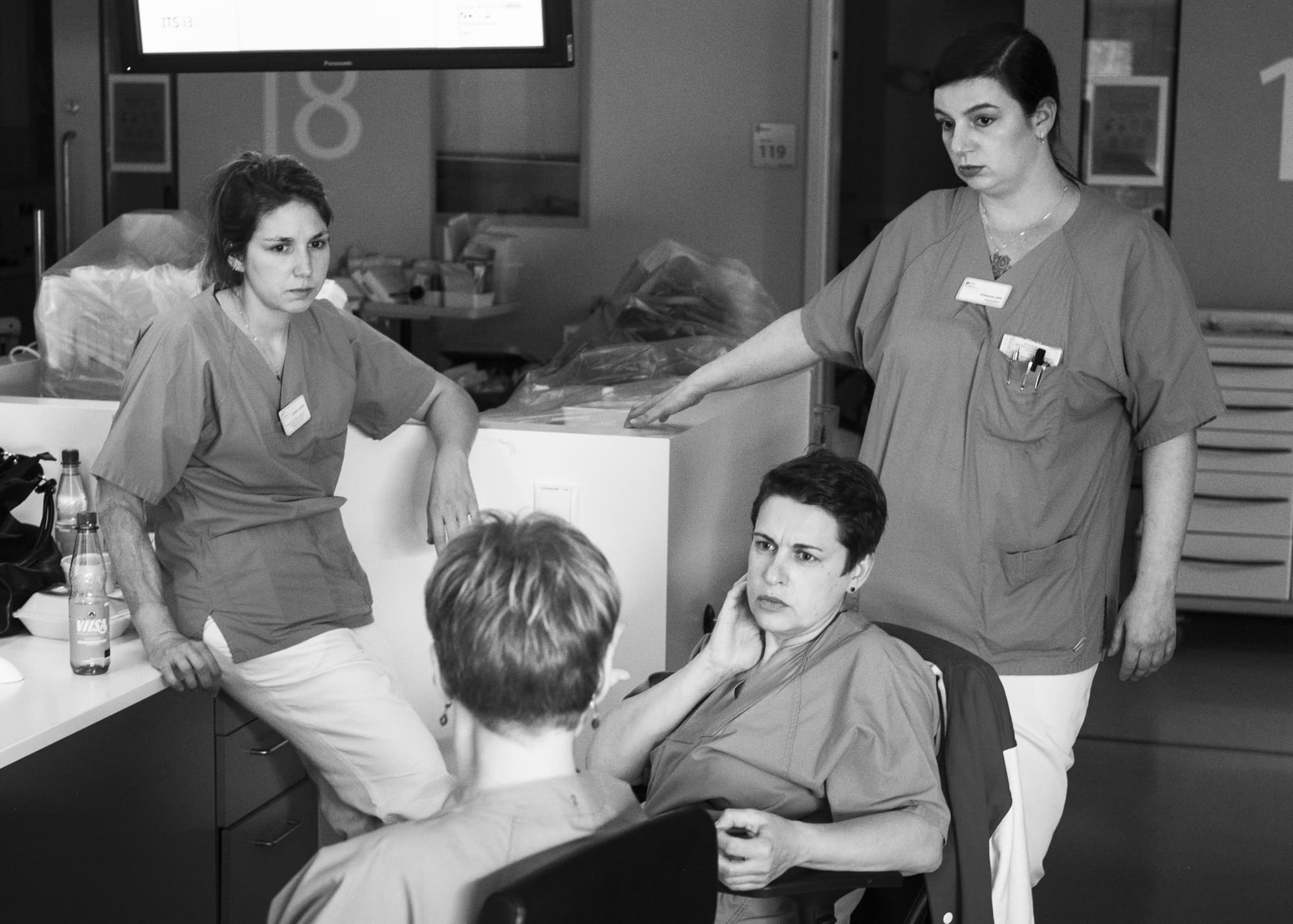
We don’t really have the options to draw attention to our situation — in comparison to train drivers, for example.
If we would go on strike — I can’t even imagine the extent of it.
Where would you start? Not giving people food? No medicine? Not washing them? What would the nursing staff on strike look like?
— Jennifer G., intensive care nurse
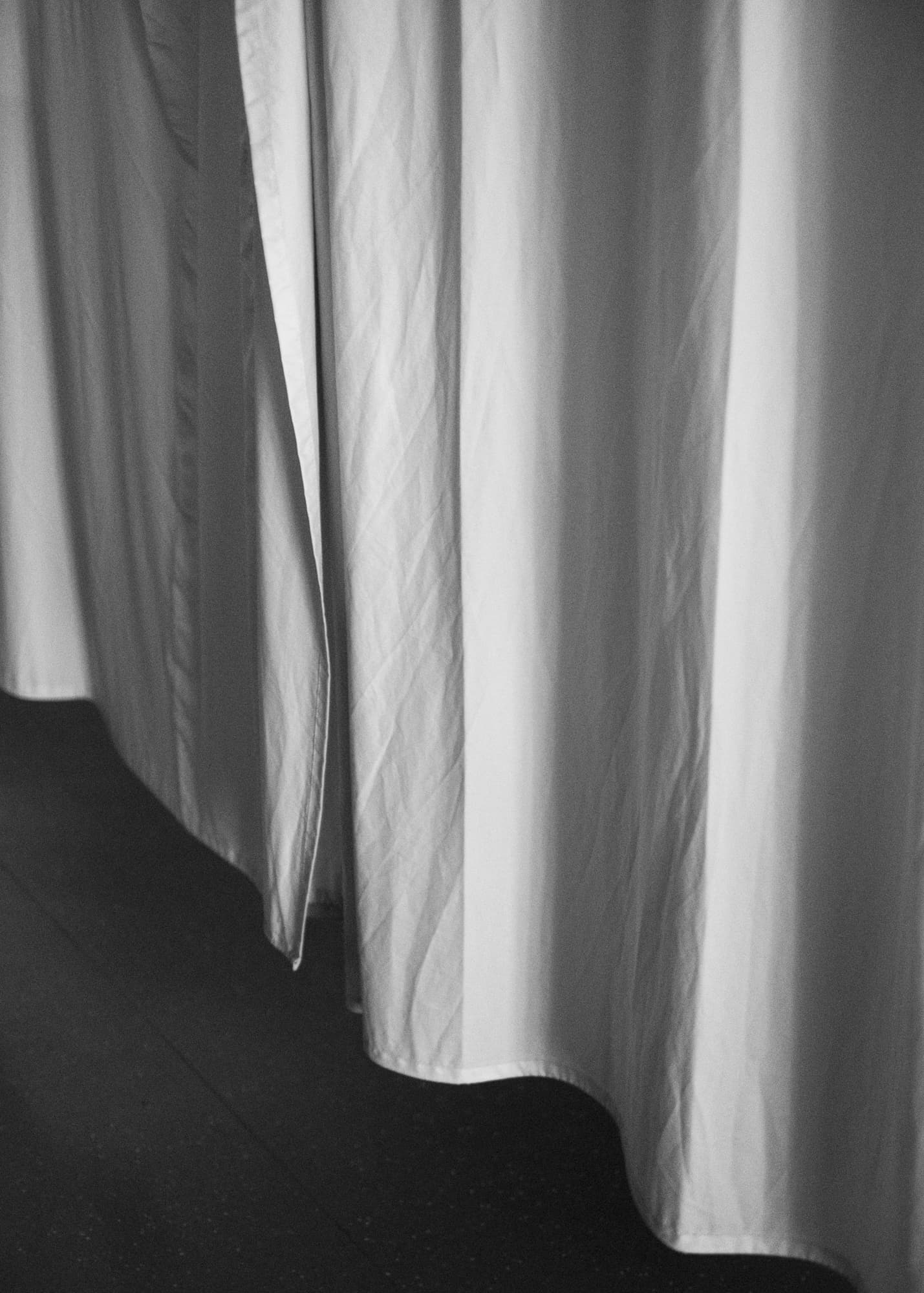
At some point in our lives, each and every one of us will benefit from the service nurses provide. They are crucial for any society to offer adequate medical care. However, in Germany, the working conditions of nurses have continually grown worse due to political and economic reasons over the last decades, despite the fact that it is one of the richest countries in the world.
Privatization of hospitals is ongoing. Because of a change in the accounting settlement system, financial pressure dictates every decision made. Making hospitals profitable has been made priority over service for the public.
As a consequence, shifts are understaffed and the pressure on the remaining nurses is enormous. They have to take care of more and more patient in less time, hardly able to meet their own standards. The capitalist system works contrary to the fact that good nursing takes time and expertise. Nursing is a complex profession — on a technical, medical, and social level.
It is a challenge to photograph nursing in a hospital, as the profession itself has to invade the private space of patients and it is hard to follow. Where to draw the line? What is appropriate to show in public, paying tribute to the nurses work, yet considering patients rights and their dignity?
As a result of this dilemma, in the media, nurses are often reduced to a person pushing a bed down white corridors. The real contribution of nurses to our society stays invisible, as traditionally mostly female care work often does, underpaid and unrecognized.
„Nicht müde werden“ („Not to grow tired“) shines a light on the achievements of one of the largest occupational groups in Germany, which has been working on maximum load for too long.
The quotes are excerpts from extensive interviews with the nurses Thorid G., Jennifer G. and Anna W., conducted in collaboration with Kai Nolda and Jonas Dengler for the presentation of the work at the Lumix Festival 2020.